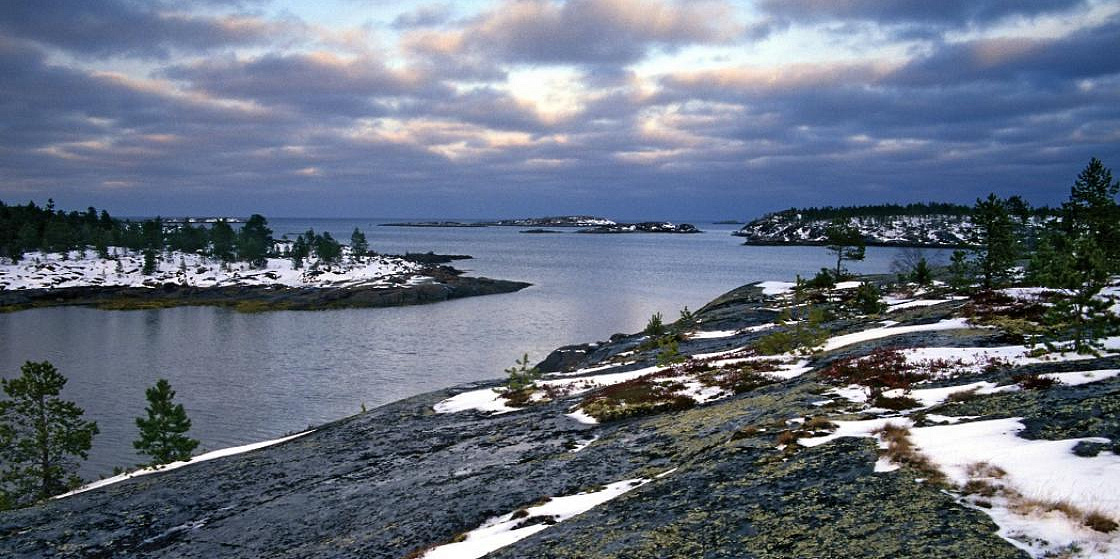
Photo: Georgievsky Igor/GeoPhoto.ru
Building a New City in the Far East to Pave Way for Arctic Renovation
The idea to build several new cities in Russia east of Urals recently voiced by Russian Defense Minister Sergei Shoigu has all chances to become reality. On 6 September, he shared his views on where such cities could be founded: two ones between the cities of Bratsk and Krasnoyarsk (to specialize in copper, electronics and high-grade aluminum production), one in South Siberia (coal), one in the area adjacent to the city of Kansk (plastics production), and one more in the vicinity of Lesosibirsk (wood processing and construction materials).
In line with this idea, on the margins of the Eastern Economic Forum held on 2-4 September, an agreement to build a new city in 30 kilometers of Vladivostok was concluded between the Ministry for the Russian Far East and Arctic, the Far East and Arctic Development Corporation, VEB.RF and the New City Projects LLC. The new city called Sputnik, which will fill in the space between the cities of Vladivostok (600,000 residents) and Artyom (100,000 residents), is expected to accommodate some 300,000 people. The three cities will eventually merge into a metropolitan area of about one million residents. According to Far Eastern and Arctic Minister Chekunkov, Sputnik will be “a modern city with a comfortable environment”.
Founding a new city near Vladivostok marks an important milestone for the Russian Far East and Arctic.
First, a new metropolitan area is expected to both provide labor for the rapidly expanding economy of the region and contribute to fueling its growth as a burgeoning local consumer market.
Second, as a large investment and construction project, the Sputnik initiative will bring more federal and corporate money into the region creating new jobs and venues for development.
Third, to the government, building Sputnik will be an important challenge in terms of addressing the issue of demographic and economic imbalances between the eastern and western parts of the country. While Russia has a historic record of large-scale colonization projects (under both the Russian Empire and the Soviets), nothing of this scale has been done since the collapse of the USSR. In this light, the Sputnik case will pave the way for other city building projects to be implemented in other remote parts of Russia, including the Arctic.
However, at present, the construction of new settlements in the Russian Arctic is unlikely for climatic and logistical reasons. According to Vice-Premier Trutnev, it is necessary to focus on renovating the existing Far Eastern and Arctic cities rather than building new ones. Therefore, the government is expected to invest into systemic reconstruction of the Arctic settlements combined with restarting local businesses and opening up new opportunities for development.
In line with this idea, on the margins of the Eastern Economic Forum held on 2-4 September, an agreement to build a new city in 30 kilometers of Vladivostok was concluded between the Ministry for the Russian Far East and Arctic, the Far East and Arctic Development Corporation, VEB.RF and the New City Projects LLC. The new city called Sputnik, which will fill in the space between the cities of Vladivostok (600,000 residents) and Artyom (100,000 residents), is expected to accommodate some 300,000 people. The three cities will eventually merge into a metropolitan area of about one million residents. According to Far Eastern and Arctic Minister Chekunkov, Sputnik will be “a modern city with a comfortable environment”.
Founding a new city near Vladivostok marks an important milestone for the Russian Far East and Arctic.
First, a new metropolitan area is expected to both provide labor for the rapidly expanding economy of the region and contribute to fueling its growth as a burgeoning local consumer market.
Second, as a large investment and construction project, the Sputnik initiative will bring more federal and corporate money into the region creating new jobs and venues for development.
Third, to the government, building Sputnik will be an important challenge in terms of addressing the issue of demographic and economic imbalances between the eastern and western parts of the country. While Russia has a historic record of large-scale colonization projects (under both the Russian Empire and the Soviets), nothing of this scale has been done since the collapse of the USSR. In this light, the Sputnik case will pave the way for other city building projects to be implemented in other remote parts of Russia, including the Arctic.
However, at present, the construction of new settlements in the Russian Arctic is unlikely for climatic and logistical reasons. According to Vice-Premier Trutnev, it is necessary to focus on renovating the existing Far Eastern and Arctic cities rather than building new ones. Therefore, the government is expected to invest into systemic reconstruction of the Arctic settlements combined with restarting local businesses and opening up new opportunities for development.
6 September 2021




